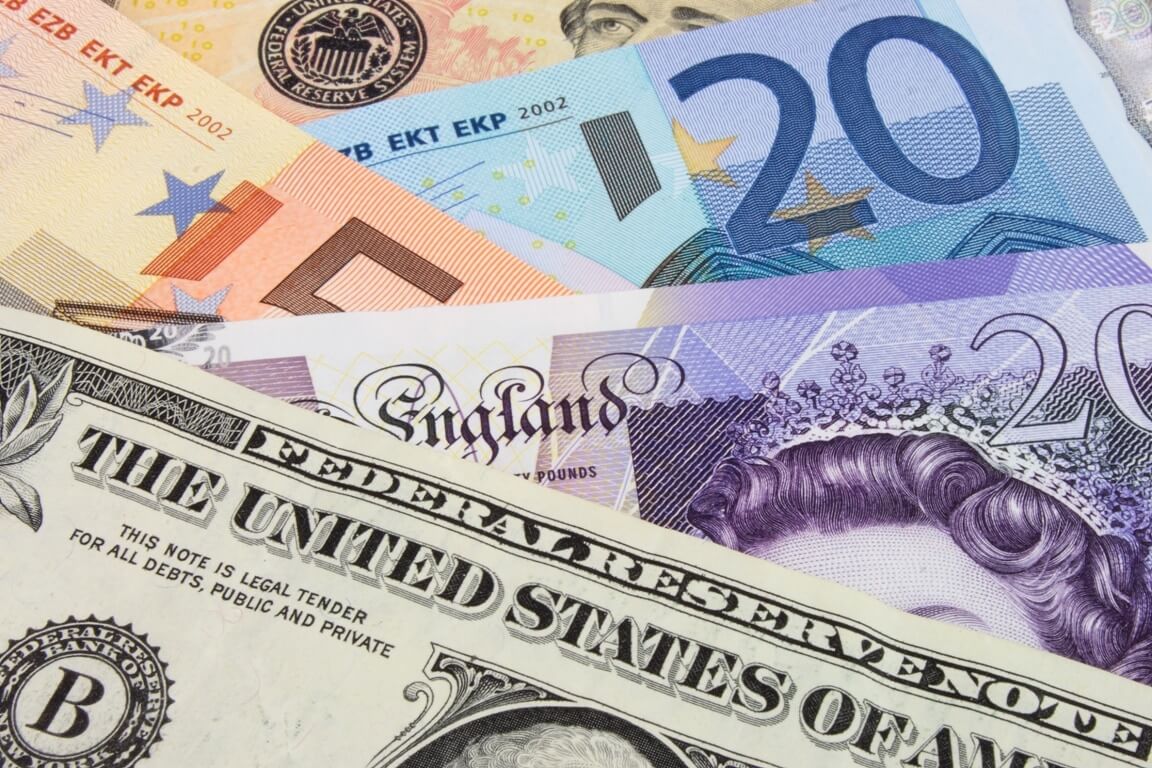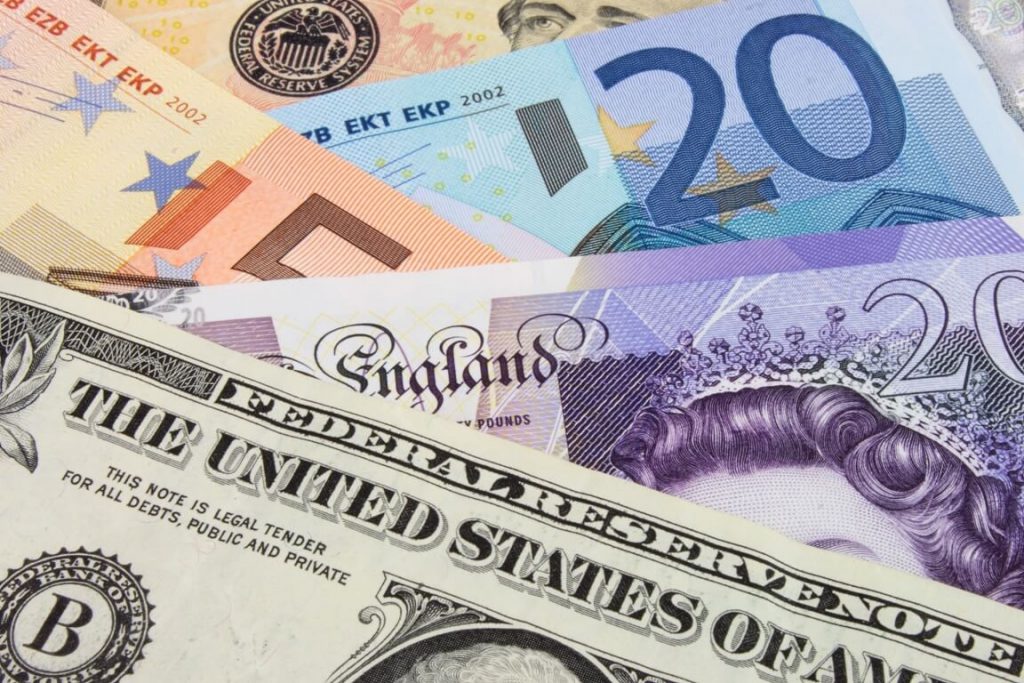
The dollar dropped on Thursday. What about Euro and Sterling?
The U.S. dollar declined from near a two-decade high against major currencies on Thursday. It tracked an easing in Treasury yields, while U.S. equity futures accelerated gains as traders contemplated the economic outlook. Meanwhile, the euro rebounded from near a two-decade trough, while the commodity-linked Australian dollar rallied amid a recovery in copper and crude oil prices.
The dollar index plummeted by 0.22% to 106.82 against the basket of six counterparts, pulling away from the overnight high at 107.27, a level not reached since late 2002. The two-year Treasury yield had jumped from near one-month lows to as high as 3.006% overnight, but then it pulled back to 2.9629%. At the same time, S&P 500 Emini futures hinted at a 0.3% increase for the U.S. stock index at the open.
The common currency soared by 0.25% to $1.01845 after plunging as low as $1.01615 on Wednesday. That also happened for the first time since the end of 2002.
On the other hand, the Aussie surged forward by 0.55% to $0.6820, after dropping to a two-year low of $0.67615 on Wednesday. Brent crude reached $101, while copper added 3%. Ray Attrill, a strategist at National Australia Bank, noted that risk sentiment seems to be in reasonable shape in Asia. At the same time, U.S. yields have backed off a little bit. As a result, everything sorts of fits together for the greenback to peel back slightly from its highs.
Attrill also added that commodities aren’t suffering as much as they were at the start of the week. Thus, there’s a positive story for commodity- and pro-cyclical currencies. But an overall softer dollar is the counterpart to that.
How is the British Pound faring?
The Sterling edged up from a two-year low amid the greenback’s weakness on Thursday. British Prime Minister Boris Johnson is currently fighting to keep his job amidst a mounting rebellion within his party. The British pound soared by 0.25% to $1.19515, after an overnight plunge to the lowest level since March 2020 at $1.1877.
Investors are assessing the risks of a U.S. recession with the Federal Reserve increasing rates aggressively. The agency released the minutes of June’s meeting on Wednesday. Policymakers tightened rates by 75 basis points, the most since 1994, at this meeting. However, analysts think that worsening inflation could erase faith in the Federal Reserve’s ability to control it.
Moreover, some lacklustre economic data has raised speculation in the markets that tighter conditions were already producing an effect. Data overnight showed U.S. job openings dropped less than expected in May, hinting at a still-tight labour market that could keep the Federal Reserve on the offensive.
Investors are now waiting for the next major U.S. economic release of the jobs report for June. The latter is due on Friday. Some economists expect the data to show that employers have added 268,000 non-farm payrolls during the last month.
Meanwhile, the dollar traded only slightly changed at 135.85 yen, firming around that level after pulling back from a 24-year peak at 137.00 at the end of last month. According to the analysts, the pair might stay above 130 by year-end.
What about the EM currencies?
Most Asian stock markets climbed up on Thursday as market participants juggled concerns over inflation versus an economic recession.
Regional currencies were mixed against a strong greenback today. The Malaysian ringgit and Philippine peso traded largely flat. At the same time, the Singapore dollar, Indian rupee and South Korean won proved resilient, soaring between 0.3% and 0.5%.
Furthermore, shares in Seoul surged forward by more than 2%, recovering from a 20-month low hit in the previous session. Heavyweight chipmakers skyrocketed after earnings results, boosting the shares. The country is now discussing the possibility of cutting the palm oil export levy, aiming to help stimulate more overseas shipments – stated Indonesia’s senior cabinet minister Luhut Pandjaitan.
Equities in Jakarta climbed up to 0.6% while the rupiah gained 0.1%. Thailand’s central bank announced that it would hold a media briefing on the policy interest rate and the baht on Friday. The local currency is currently trading at its weakest level in more than six years against the U.S. dollar. However, the baht soared by 0.3% on Thursday while stocks in the country remained set for their best session in over a week, jumping by 0.8%.


